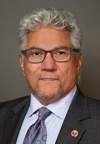SENATORS’ STATEMENTS — National Indigenous Peoples Day
June 21, 2022
Honourable senators, I rise in celebration of National Indigenous Peoples Day. This day is part of the Celebrate Canada program, which also includes Saint-Jean-Baptiste Day, Canadian Multiculturalism Day and Canada Day itself. National Indigenous Peoples Day is an integral part of the Celebrate Canada program in that it completes the recognition of Canada’s multi-faceted diversity. Collectively, these four days allow for a completely inclusive recognition of all the peoples who together have built our country.
From the earliest days of Canada, Indigenous peoples contributed to the defence of Canada, doing so in the War of 1812, in the two world wars fought during the 20th century, assisting in the defence of my homeland of Korea and contributing to Canada’s military efforts in the peacekeeping missions and conflicts that have occurred since that time.
One of the most decorated Indigenous veterans was Tommy Prince, who bravely served in both World War II and the Korean War. Too often the contributions made by Indigenous peoples have not been given the recognition they so justly deserve.
In this regard, I believe it is so important that the War of 1812 Book of Remembrance unveiled in Parliament’s Memorial Chamber just a few years ago incorporates a listing of individual Indigenous warriors who gave their lives in the struggle which preserved their own individual nations and Canada itself in the face of invasion.
We also recognize the countless number of Indigenous peoples in all walks of life who have contributed so much to bettering the lives of their own people and all Canadians. There are literally too many people to name, but in my own field of education, we have the inspiring contributions of people like Verna Kirkness, an educational trailblazer in Manitoba; Janet Smylie, associate professor at the Dalla Lana School of Public Health at the University of Toronto; and our very own former colleague, the honourable Lillian Dyck, who served as a professor in the neuropsychology research unit, Department of Psychiatry, at the University of Saskatchewan before serving in the Senate with distinction.
On this day, we recognize and acknowledge all of their contributions to the building of our country. The historical relationship between Indigenous peoples and Canada has often been difficult, but through the day that we celebrate today, we proclaim both our gratitude and our determination to move forward together as we build Canada.
Thank you.
Honourable senators, I rise to share two stories in celebration of National Indigenous Peoples Day.
First, I wish to pay tribute to the late Harry Daniels, a proud Métis. Harry was recently honoured by Canada Post with a commemorative stamp that highlights his contributions to Indigenous history.
He was, perhaps, most well known for his part in the constitutional negotiations that defined Canadian politics in the 1980s. Daniels was a fierce advocate for the rights of the Métis, and he fought to ensure that Métis were included in the constitutional definition of “aboriginal peoples.”
This was no small task. He clashed with then justice minister Jean Chrétien, who at first refused Daniels’ demands. But Harry’s fierce advocacy and persistent nature eventually persuaded Chrétien and then Prime Minister Trudeau to include the Métis. That decision changed the relationship between the Métis and the federal government.
I want to express my appreciation to Canada Post for honouring Harry with this tribute and for asking me to speak at last week’s ceremony in Regina. This was a significant event for Regina Beach and our extended family. Harry was my mother’s cousin, and because he was 17 years my senior, he was, and always will be, Uncle Harry to me.
These commemorative stamps tell stories, and I think that connects Canada Post with Indigenous peoples, as it is our tradition to connect generations by passing down our knowledge through storytelling.
I’d like to share another story, one that highlights another fight for justice. I recently watched a film called I’m Not An Indian, directed by R. J. Maloney in partnership with Jake Dockstator, a creator on the film.
The documentary tells the story of the late Chief Orville Smoke, leader of the Dakota Plains First Nation. It’s a powerful story of uncomfortable truths and tragic and dreadful consequences, but there are also elements of hope.
The documentary is available on Crave, and although the subject matter deals with sorrowful and tragic events, I challenge my colleagues in this chamber to watch it this summer before September 30, 2022, when Canada marks the National Day for Truth and Reconciliation.
Chief Smoke and Harry Daniels fought hard to better the lives of Indigenous peoples. Their legacies are not just their accomplishments but also the path they paved for future generations. We must remember their stories, and we must tell their stories so they are not forgotten.
Thank you. Hiy kitatamîhin.

